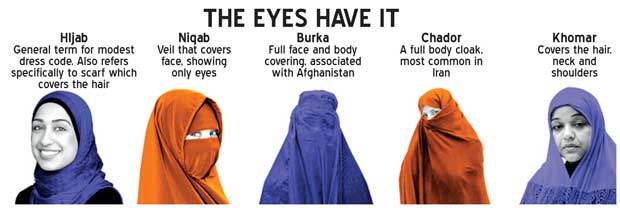Latest News
-
Anti-terrorism Bill will be changedThe highly controversial Antiterrorism Bill is subject to amendments and changes in Parliament and as such no one should have any fear or feeling of threat from the proposed Bill, Justice Minister Dr. Wijeyadasa Rajapakshe said. The government is aware of concerns raised by the global and local community on certain provisions contained in the draft of the Anti-terrorism Bill and the Government is ready to alleviate them by discussion, compromise and flexibility, he added. Addressing a news conference at the Information Department auditorium, Minister Rajapakshe said the Prevention of Terrorism Act (PTA) passed in 1979 under President J.R. Jayewardene’s rule as a temporary measure to counter the emerging separatist insurgency. The PTA has been misused and exploited by successive Governments since then for their personal and political...Read More...
-
WhatsApp adds option to use the same account on multiple phonesWhatsApp users are no longer restricted to using their account on just a single phone. Today, the Meta-owned messaging service is announcing that its multi-device feature — which previously allowed you to access and send messages from additional Android tablets, browsers, or computers alongside your primary phone — is expanding to support additional smartphones. “One WhatsApp account, now across multiple phones” is how the service describes the feature, which it says is rolling out to everyone in the coming weeks.
Setting up a secondary phone to use with your WhatsApp account happens after doing a fresh install of the app. Except, rather than entering your phone number during setup and logging in as usual, you instead tap a new “link to existing account” option. This will generate a QR...Read More... -
CBK commends Dr. Shafi’s noble gesture of donating past salary to buy essential medicineFalsely accused by racist elements for alleged illegal sterilisation, Kurunegala Teaching Hospital doctor says racism will not take country or organisation forward except make poor people suffer more; calls on all to make Sri Lanka racism-free Former President Chandrika Bandaranaike Kumaratunga has commended Dr. Mohamed Shafi Shihabdeen over his gesture of donating the past salaries amounting to Rs. 2.6 million during his suspension and imprisonment on false charges to buy essential medicines. Chandrika Bandaranaike Kumaratunga
Dr. Mohamed Shafi Shihabdeen
Following...Read More... -
Dr. Shafi donates arrears of his salary to purchase medicines for hospitalsDr. Shihabdeen Mohamed Shafi, the doctor at the Kurunegala Teaching Hospital has decided to donate arrears of his salary amounting over Rs. 2.67 million for the purchase of essential medicines for hospitals.
Dr. Shafi who was on compulsory leave on charges of performing infertility surgery, has received a cheque of over Rs. 2.67 million salary arrears from the Health Ministry last week.
The salary arrears include the basic salary, interim allowance, cost of living, and allowance in lieu of pension for the period of compulsory leave imposed on Dr. Sihabdeen.
Dr. Shafi who was employed at the Kurunegala teaching hospital was arrested on May 25th, 2019, on charges of performing infertility surgery.
On July 25, 2019, the Kurunegala Magistrate’s Court ordered that the doctor be released on bail.Read More...Govt. used Sinhala-Buddhist shield to its maximum benefit Ven. Galkande Dhammananda TheraThis Govt. nurtured thug-like monks promoted them and deployed them in various places Certain monks have severe psychological wounds If society isn’t healed cases of domestic violence, harassment and child abuse will be on the rise Reconciliation was about having workshops, providing a report and earning dollars Accountability has not been included in the Constitution or the Judicial system Terrorism sprouts in a country that has no justice Ven. Galkande Dhammananda Thera who currently heads the Walpola Rahula Institute for Buddhist Studies has been addressing issues related to social justice and harmony while promoting an inclusive and plural society. Having gathered a wealth of experience during the height of war for instance and having encountered various incidents during his lifetime, Ven. Dhammananda Thera has...Read More...Health ministry to pay back-wages for Dr. Shafi before July 10The Ministry of Health today gave an undertaking before the Court of Appeal that the salary and allowances payable to Dr. Shafi Shihabdeen will be paid before July 10 this year. The Ministry of Health gave this undertaking pursuant to a writ petition filed by Dr. Shafi Shihabdeen, who was at the centre of the controversy surrounding the alleged sterilisation of female patients. The Director General of Establishment at the Ministry of Public Services had earlier informed the Court that the basic salary, interim allowance, cost of living and allowance in lieu of pension could be paid to Dr. Shafi Shihabdeen, for the compulsory leave period. Meanwhile, the petitioner expressed willingness to attend the preliminary inquiry before Director of Kurunegala Teaching Hospital Dr. Chandana Kendangamuwa. Taking into consideration the facts,...Read More...Sri Lanka court orders release of lawyer held for two yearsA Sri Lankan court has ordered the release on bail of a lawyer arrested over his alleged links to the 2019 Easter Sunday bombings and held for nearly two years on charges rights groups say lacked credible evidence. Hejaaz Hizbullah was arrested in April 2020 and accused of being linked to the attacks on churches and hotels that left 279 people dead. But after prosecutors failed to provide evidence of his involvement in the attacks, blamed on a local group, he was instead Read More...Hejaaz Hizbullah leaves from remand custodyAttorney-at-law Hejaaz Hizbullah today left from remand custody after fulfilling his bail conditions before Puttlalam High Court.Read More...
He was incarcerated for 22 months for allegedly committing offences come under the Prevention of Terrorism Act.Last Monday (07), the Court of Appeal ordered to release Hizbullah on bail pursuant to a revision application filed on behalf him.Hizbullah was ordered to be released on a cash bail of Rs.100,000 with two sureties of Rs.500,000 by Puttlalam High Court Judge Kumari Abeyratne. He was further ordered to report to the DIG office of Puttalam Police Division every second and fourth Sunday of every month.An indictment under the Prevention of Terrorism Act and the International Covenant on Civil and Political Rights (ICCPR) Act has now been served on Hejaaz Hizbullah. According to the indictment, Hizbullah...හිජාස් ගෙදර යයි
(නිමන්ති රණසිංහ සහ හිරාන් ප්රියංකර ජයසිංහ) ත්රස්තවාදය වැළැක්වීමේ පනත සහ සිවිල් හා දේශපාලන අයිතීන් පිළිබද ජාත්යන්තර සම්මුති පනත ප්රකාරව චෝදනා ලැබ වසර දෙකකට ආසන්න කාලයක් රක්ෂිත බන්ධනාගාර ගත කර සිටි නිතීඥ හිජාස් හිස්බුල්ලා මහතා අභියාචනාධිකරණ නියෝගය ප්රකාරව ඇප මත මුදාහැරීමට පුත්තලම මහාධිකරණය අද (09)...Read More...Court of Appeal grants bail on Hejaaz HizbullahThe Court of Appeal today ordered to release Attorney-at-law Hejaaz Hizbullah on bail after nearly two years in detention and remand custody. Accordingly, the Court of Appeal directed the Puttalam High Court to release Hejaaz Hizbullah on bail with suitable bail conditions. The Court of Appeal two-judge-bench comprising Justice Menaka Wijesundera and Justice Neil Iddawala made this order taking into consideration a revision application filed on behalf of Hejaaz Hizbullah. The Attorney General did not raise objections to release Hizbullah on bail. On January 28, an application made by the defence requesting to release Attorney-at-law Hejaaz Hizbullah on bail was rejected by Puttalam High Court. The High Court Judge Kumari Abeyrathne refused to grant bail citing that she has no jurisdiction to grant bail under the Prevention of Terrorism...Read More...- 1
- 2
- 3
- 4
- 5
- 6
- 7
- 8
- 9
‘Radicalisation’ among Sri Lankan Muslims

 A number of recent opinion pieces penned by some well-known writers have drawn attention to the growing ‘radicalisation’ among the Muslims of Sri Lanka. Among the key concerns raised are that Sri Lankan Muslims are becoming ‘exclusivist’ and ‘self-alienating’ by following a strict interpretation of Islam, manifested in particular by the growing number of Muslim women who have adopted all-encompassing ‘alien, Arab attire’.
A number of recent opinion pieces penned by some well-known writers have drawn attention to the growing ‘radicalisation’ among the Muslims of Sri Lanka. Among the key concerns raised are that Sri Lankan Muslims are becoming ‘exclusivist’ and ‘self-alienating’ by following a strict interpretation of Islam, manifested in particular by the growing number of Muslim women who have adopted all-encompassing ‘alien, Arab attire’.
By conflating the veil with radical Islam, the writers, perhaps inadvertently, are feeding into Islamophobia, (an unfounded fear of Islam), and fanning the flames of social discord.
Most Muslim women choose to veil themselves because they view it as a religious obligation. It has no nexus whatsoever to the ‘radicalisation’ that is allegedly unfurling in the community. Veil-clad women do not represent nor do they promote a racist ideology. Furthermore, attacking or vilifying the veil will not make it go away; on the contrary a tolerant, plural and inclusive Sri Lanka has to accommodate all Muslims in whatever dress-code they choose to adopt. The freedom to practice one’s faith is a basic human right that must be safeguarded. No one should attempt to interfere with someone else’s right to practice his or her professed religion in the manner he or she sees fit, so long as it does not infringe upon the rights of others.

That more and more Muslim women are opting to cover up – be it in the form of the hijab, the abaya or the niqab – does not warrant alarmist discourses. What should alarm all Sri Lankans is the daily record of rapes, sexual harassment of women and the growing insecurity for women, particularly those in the North. According to Women for Rights, every 90 minutes a woman is raped in Sri Lanka and an estimated 95% of women using public transportation are at risk of being sexually harassed.
What should be of concern to all Sri Lankans is the free accessibility to pornographic material (flowing in mainly from the West); in particular our children’s exposure to such destructive material which teaches them all the wrong things about sex. Even the screening of the sick-filth movie ‘Fifty Shades of Grey’, which glorifies the sexual exploitation of women, in Sri Lankan theatres did not attract the condemnation and opposition that it ought to have.
In view of much bigger and more pressing social problems, the veil is something that should neither worry those outside the Muslim community nor those within community who do not consider it an Islamic requirement. The veil – or particular types of it – is simply a piece of fabric; it does not in any way pose a threat to peace, stability and multi-culturalism.
And what does multi-culturalism really mean? It means respect for diversity, especially respect for religious and racial differences, not cultural assimilation. This includes respecting someone else’s interpretation of his or her religious obligations.
Moreover, identity is not something that is fixed. It is fluid and changes over time. The position that the items of clothing in focus, the niqab in particular, are imports from the Middle-East and do not form part of the traditional Sri Lankan Muslim woman’s attire begs the questions: what is traditional Sri Lankan Muslim attire anyway, and where did it originate from? Is it the saree? Is it the shalwar kameez? Are they not imports from India and Pakistan? And what about jeans and shorts? Should we, in similar vein, also be worried about women wearing Western attire on the premise that they are imports from the West and have nothing to do with traditional Sri Lankan attire? Taken to extreme lengths, does it then also mean that Sri Lankan Muslims should stop giving their children names of Arab origin?
The crucial point here is that a woman’s body is her business, and if she chooses to cover it up completely, it should not become a problem for anyone else. Attire is a personal judgement call; some women prefer to be seen in public with less clothing while others prefer a lot more. Ultimately, it is the woman who should make that decision.
With time, practices evolve. If women choose to shed the veil, then that too is their decision. But they must have the right to wear it if they want to. Let us not be so fixated on the Islamic dress-code and try to link it with radicalisation or extreme political violence without any concrete empirical evidence to establish such a link. There is no need to grossly over-react to a threat that is not there.
A study released last week by the International Centre for Ethnic Studies (ICES) in Colombo affirms that there is no real evidence to suggest that a jihadist movement exists in the East. The ICES study entitled ‘Fracturing Community: Intra-group relations among the Muslims of Sri Lanka’ authored by Mohamed Faslan and Nadine Vanniasinkam also points out, “the minority Muslim community is largely considered (by the majority communities) as a religiously homogeneous group when, in fact, they are splintered into various denominations which espouse different interpretations of Islam, values and practices. This ignorance of the plurality within the Muslim community and its internal politics could be a contributing factor to much of the prejudices held by individuals against the community.”
The paper further notes that “the ‘performance’ of difference among Muslim groups, visible in the form of jubbas, hijabs, niqabs, beards and the increasing number of mosques, has created an illusion of an increase in the Muslim population, adding to the fear and suspicion of the majority towards the motives of the Muslim community and its ‘repressive’ culture. These individual prejudices have in turn been manipulated by extremist nationalist groups like the Bodu Bala Sena (BBS) to incite hatred towards and violence against the Muslim community.”
If anyone intolerantly incites hatred, makes inflammatory remarks and thereby promotes communal violence (in the manner the BBS did triggering the Aluthgama riots in June 2014), then that is certainly something to be concerned about. Such persons should be dealt with under the laws of the land.
The words of Palestinian-American peace activist Linda Sarsour certainly rings true for Sri Lankan Muslims today: “We’re working too hard to be accepted instead of working hard to be respected”.
Islamophobia has been on the rise for some time now; let us refrain from unwittingly contributing to its sustenance.
(Comments can be emailed to:
This e-mail address is being protected from spambots. You need JavaScript enabled to view it
)
http://www.dailymirror.lk/107264/-Radicalisation-among-Sri-Lankan-Muslims
| < Prev | Next > |
|---|





